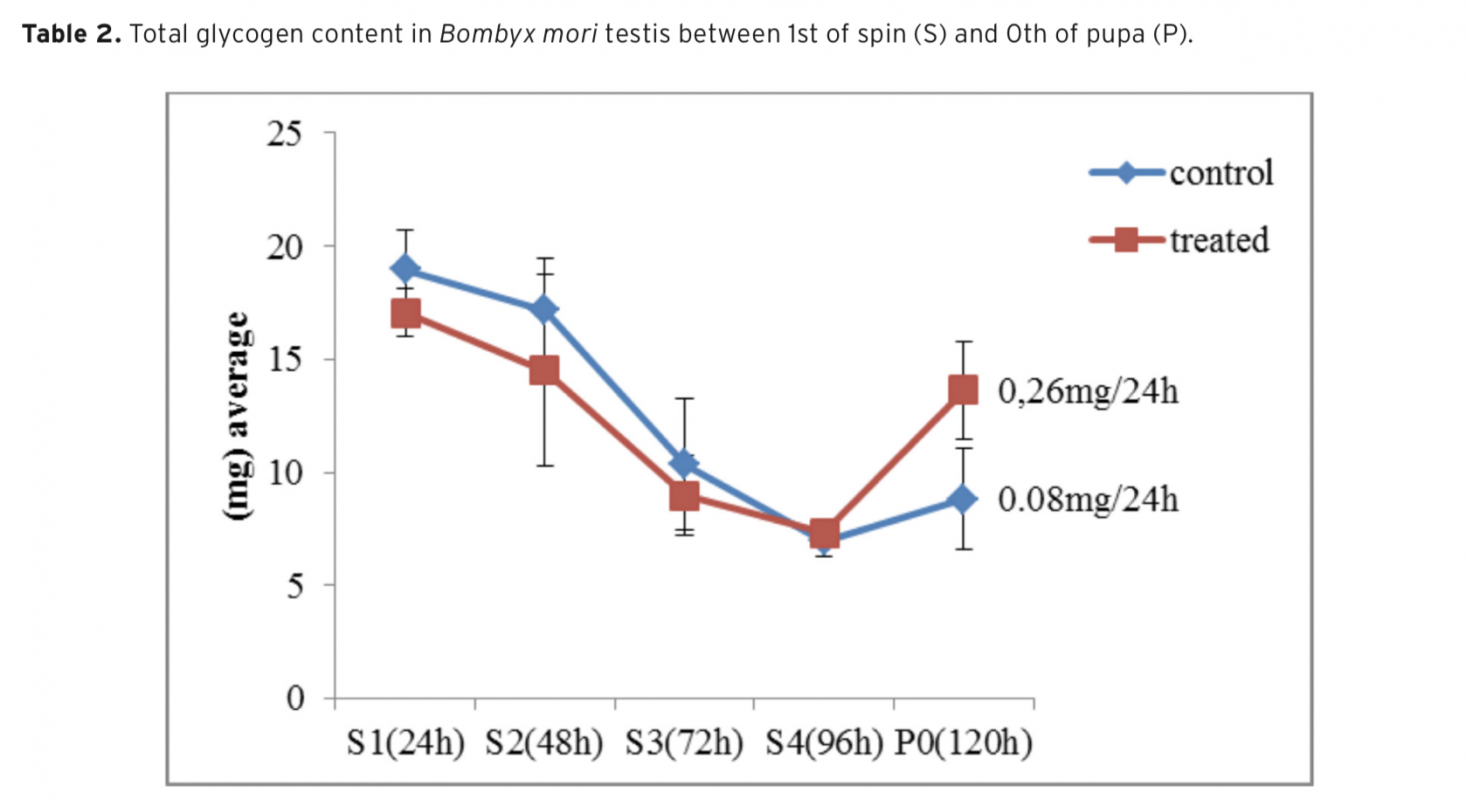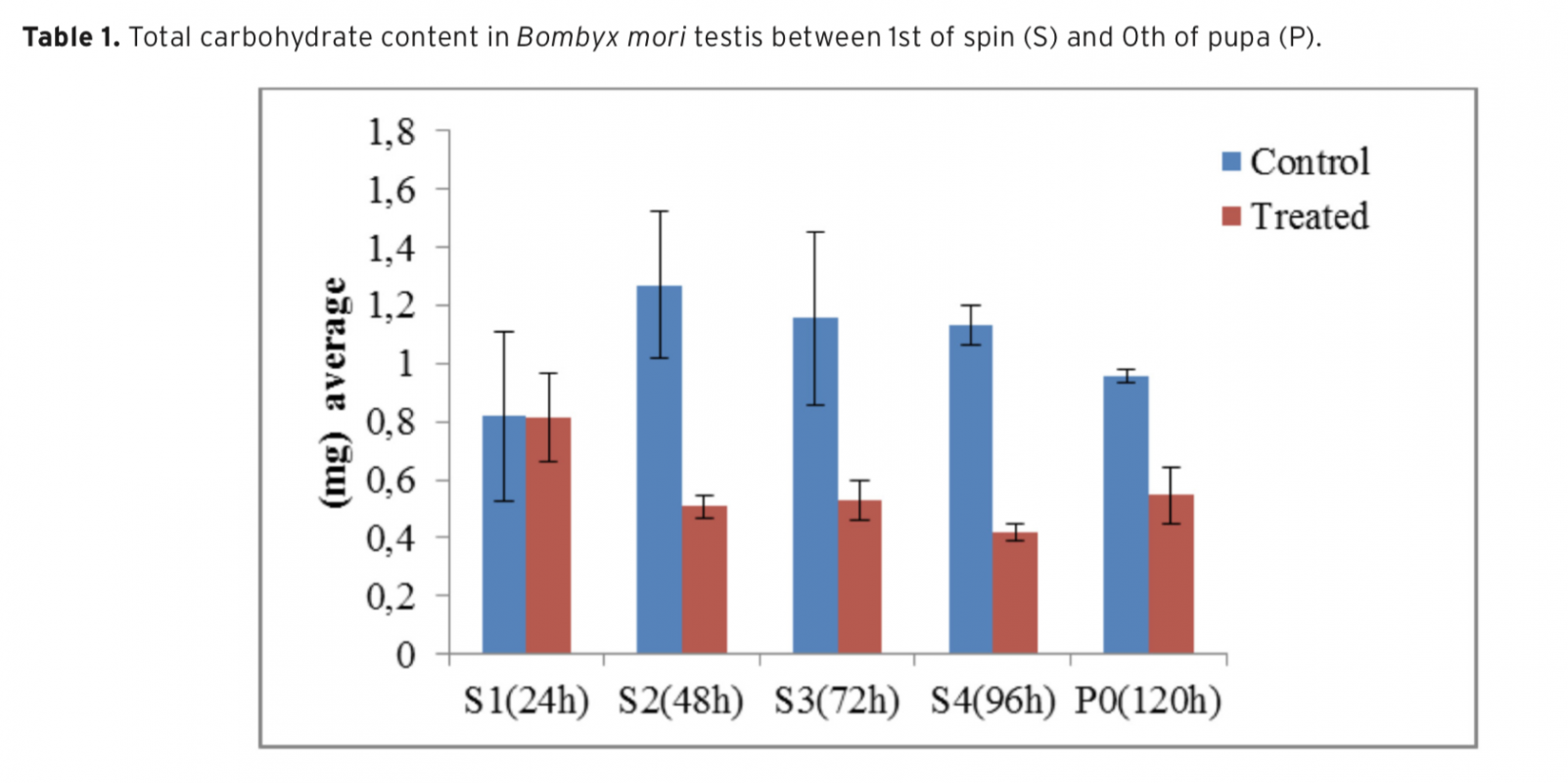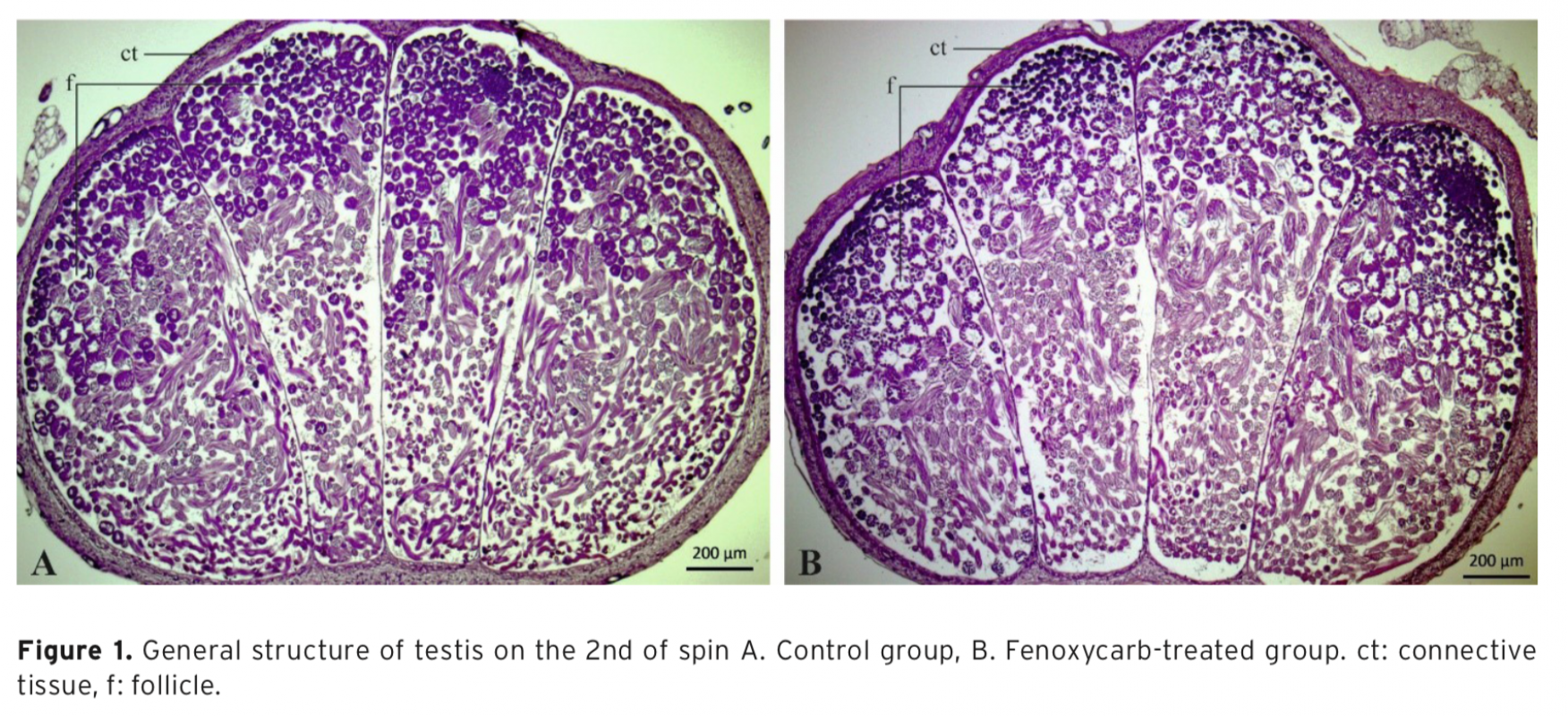The development and metamorphosis of insects is regulated by juvenile hormone (JH) and ecdysone hormone, which are worked antagonist. Fenoxycarb is an effective juvenile hormone analogue on many insects. In this study, the effect of fenoxycarb on the last larval stage Bombyx mori testes was investigated. Male larvae on the 6th day of the last instar are divided into 2 groups. 1 ng of fenoxycarb dissolved in acetone was topically applied to larvae in the treatment group and the remaining 18 larvae were used as the control group. Control and treated groups were followed to until pupation from day when they showed cocoon spinning behavior. After dissection, several of testes were entreated routine histological processes and photographed. In treatment group, it was seen that fenoxycarb reduced spermatogonium formation by suppressing ecdysone release and caused a decrease in mature sperm. Remaining testes are used to the analysis of total carbohydrate and glycogen content. In conclusion, fenoxycarb has the reducing effect on spermatogenesis and it can cause to decrease of total carbohydrate content because of stress in insects. These histological and biochemical results may be in support of the use of fenoxycarb as an insect growth regulator (IGR) for harmful insects.
Böceklerin gelişimi ve başkalaşımı başlıca birbiriyle zıt çalışan juvenil ve ekdizon hormonları tarafından düzenlenir. Fenoxycarb, birçok böcek üzerinde etkili bir juvenil hormon analoğudur. Bu çalışmada, fenoxycarbın son larval evredeki Bombyx mori testisleri üzerindeki etkisi araştırılmıştır. Son instar 6. güne ait erkek larvalar 2 gruba ayrılmıştır. Bir gruba 1ng fenoxycarb uygulanmış, geriye kalan larvalar kontrol grubu olarak kullanılmıştır. Kontrol ve uygulama grubu larvalar, koza örme davranışı gösterdikleri günden itibaren pupalaşıncaya kadar takip edilmiştir. Diseksiyon sonrası testislerin bir kısmı rutin histolojik işlemlerden geçirilmiş ve fotoğrafları çekilmiştir. Uygulama grubunda fenoxycarbın ekdizon salınımını baskılayarak spermatogonium oluşumunu azalttığı ve olgun spermlerin azalmasına neden olduğu görülmüştür. Diğer kısmı ise toplam karbohidrat ve glikojen içeriğinin analizi için kullanılmıştır. Sonuç olarak, fenoxycarb spermatogenezi azaltıcı bir etkiye sahiptir ve böcekler üzerinde stres oluşturarak toplam karbohidrat içeriğinin de azalmasını etkileyebilir. Bu histolojik ve biyokimyasal sonuçlar fenoxycarbın zararlı böcekler için böcek büyüme regülatörü (IGR) olarak kullanımını destekleyici nitelikte olabilir.



Download Article in PDF (2.9 MB)